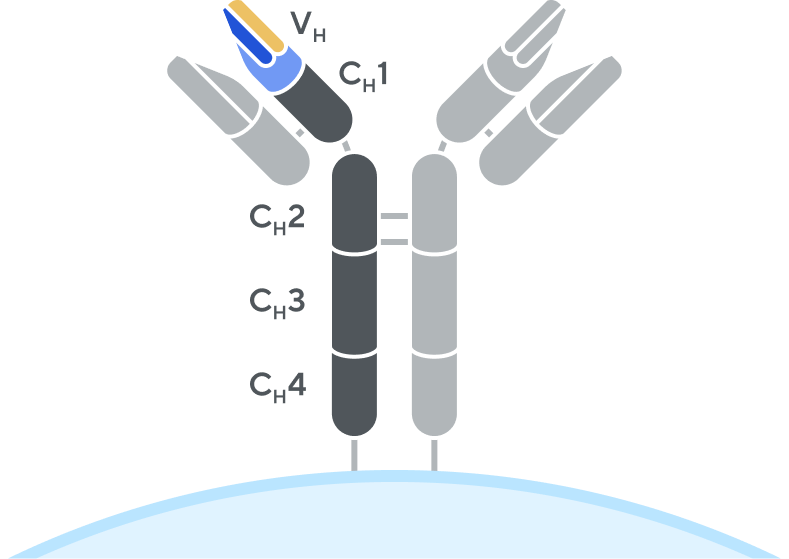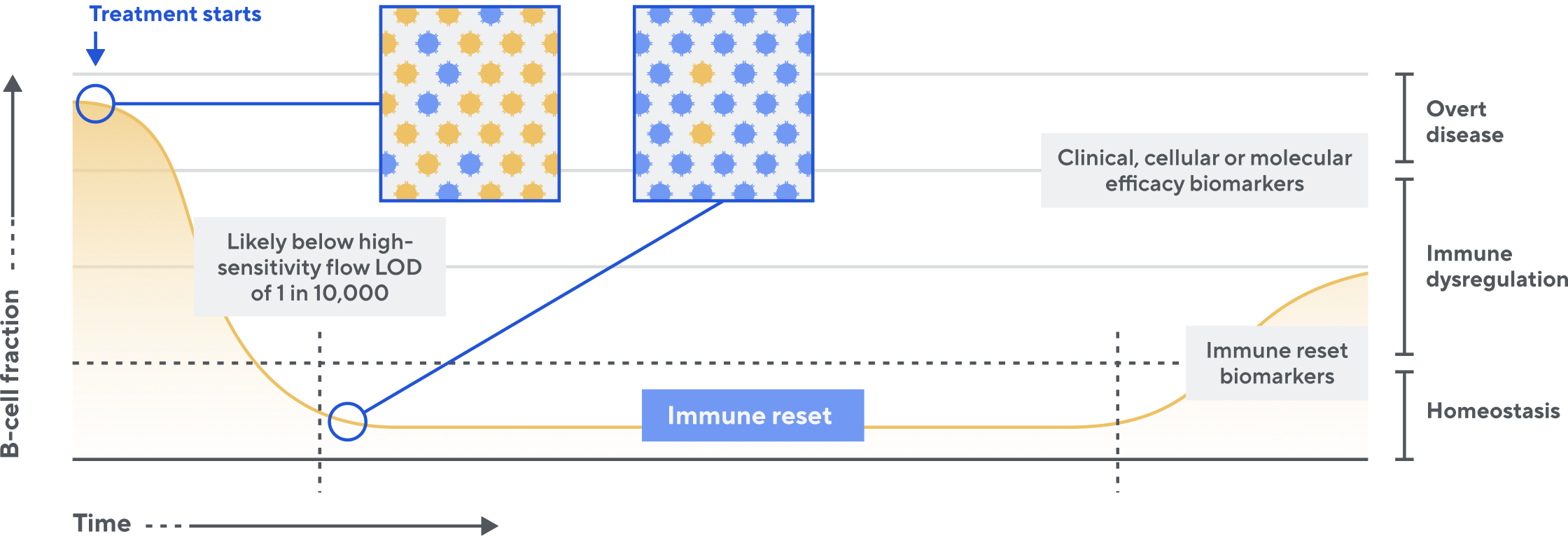BCR sequencing services
Adaptive’s B-cell receptor (BCR) sequencing analyses provide a sensitive and quantitative solution that helps researchers, drug developers, and pharma partners discover the breadth and depth of the B-cell repertoire to advance the next generation of therapies in oncology, autoimmunity, and infectious disease. The assay is available for human samples and designed for ultra-deep sensitivity for high-accuracy assessments of BCR repertoire diversity, B-cell clone tracking, and sensitive quantification of B-cell depletion in immune reset studies.
Ultra-sensitive quantitation for analyzing B-cell diversity in autoimmunity, oncology and infectious disease

B-cell receptor (BCR)
B-cell fraction
- Total B-cell count
- Total nucleated cell count
- B-cell faction
Properties of IgH repertoire
- B-cell diversity (clonality and richness)
- Rates of somatic hypermutation (SHM)
- Motif analysis
Clonal expansion and repertoire overlap
- IgH sequence tracking
- Clone counts and frequencies
- Gene annotations
Many of the B-cell receptor sequencing analysis approaches and metrics are similar to the T-cell receptor sequencing analyses.
Fit for purpose in ultra-sensitive quantitation of B-cell depletion and immune reset

IGH repertoire
Capture all functional B-cell receptors and assess repertoire properties like diversity and somatic hypermutation
Unparalleled sensitivity
Analytically qualified and fit for sensitive detection (>1 in 105) of total B-cell counts after B cell-depleting therapies
Quantitative B-cell count
Accurate quantitation of nucleated cells to determine B-cell count/fraction
Flexible sample types
gDNA is a stable source that can be banked to enable retrospective analysis; compatible with blood, FFPE, frozen tissue.
Adaptive’s B-cell receptor sequencing analyses provide sensitive quantitation of total B-cell counts for quantifying the kinetics and depth of B-cell depletion. The sensitive detection enables accurate reports of a total B-cell count and B-cell fraction within the total nucleated cell input down to more than one in 105 cells. In addition, with the assay designed to assess and report all B-cell receptor sequences via the IgH loci, B-cell repertoire diversity and somatic hypermutation can be assessed during the immune reset phase of therapy.